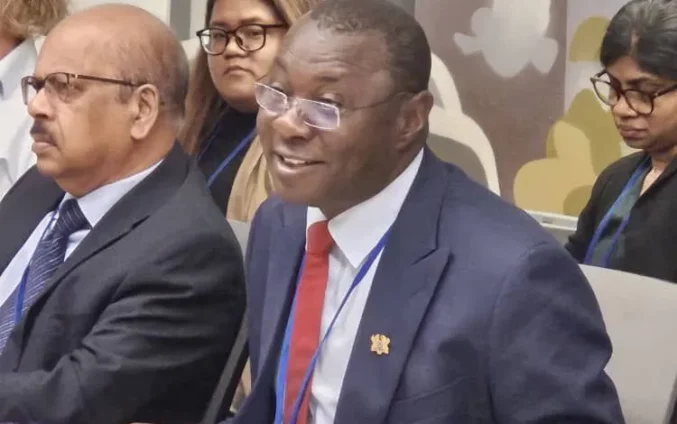The International Monetary Fund (IMF) has urged Ghana’s government to improve the country’s energy sector governance architecture to address the challenges that have contributed to recent irregular electricity supply.
Dr Mohammed Amin Adam, Finance Minister, recently said that Ghana’s energy sector has a financing gap of about US$1.9 billion.
He has since called for private sector investment in the energy sector, assuring that the government had set it up for profitability.
“Progress has been made in increasing transparency and in addressing the sector’s shortfall – including by implementing tariff increases, but more needs to be done to improve governance and reduce technical and commercial losses,” the IMF said.
The Fund said in a correspondence with the Ghana News Agency that the energy sector remained critical to Ghana’s economy, with current power disruptions “undoubtedly affecting many people’s lives.”
In response to the GNA’s inquiries, the Fund emphasized the significance of improving the energy sector’s governance framework, particularly addressing technical and commercial losses.
It said that under its current US$3 billion Extended Credit Facility (ECF) programme with Ghana, the Fund, in partnership with the World Bank, is supporting the government in implementing reforms in the sector.
“These reforms will take time, and we remain committed to working with the government to help build a more sustainable and resilient energy sector for Ghana’s future,” the Spokesperson, said.
In an interview with GNA, Nana Amoasi VII, Executive Director, Institute of Energy Security (IES), said the call by the Fund signified the need for enhanced transparency, accountability, efficiency, and effectiveness in managing and regulating the energy sector.
He said the IMF’s call also highlighted concerns about Ghana’s energy sector’s financial instability, particularly in the power sub-sector, which is influenced by issues such as debt mismanagement, low revenue generation, and fiscal indiscipline.
Nana Amoasi VII suggested that those concerns be addressed by a comprehensive strategy that includes legislative and policy reforms, stakeholder collaboration, monitoring and evaluation, public awareness, and technology innovation.
“It is equally important to consider strengthening regulatory institutions and ensuring policy consistency and coherence. We also cannot overlook the financial management and sustainability of the sector,” he said.
Latest Stories
-
Appoint ‘brutal’ OPK as Whip – Carlos Ahenkorah urges NPP leadership
31 minutes -
Ablakwa questions alleged GH₵60m transfer to presidency for ‘special operations’
1 hour -
Dame Judi reveals apple tribute to Maggie Smith
1 hour -
NDC rejects rerun in outstanding polling station in Dome Kwabenya
2 hours -
EC has the power to re-collate results – Ayikoi Otoo
2 hours -
Putin apologises for plane crash, without saying Russia at fault
2 hours -
Footage shows NY officers beating prisoner before death
2 hours -
AngloGold Ashanti equips mastercraft persons at Sanso with tools to train youth apprentices
2 hours -
Okokobioko delivers resounding performance at 1031 Laughs & Music
2 hours -
Fatawu Issahaku’s knee injury a big blow for Leicester – Van Nistelrooy
3 hours -
EC to rerun parliamentary election at outstanding polling station in Dome Kwabenya
3 hours -
Liverpool manager hails Mohammed Kudus ahead of West Ham clash
3 hours -
Final declaration of Dome-Kwabenya parliamentary results suspended for the 3rd time amid chaos
3 hours -
Mahama’s one-term a golden opportunity to improve governance – Kyei-Mensah-Bonsu on constitutional review
4 hours -
Saka faces ‘more than two months’ out after surgery – Arteta
4 hours

